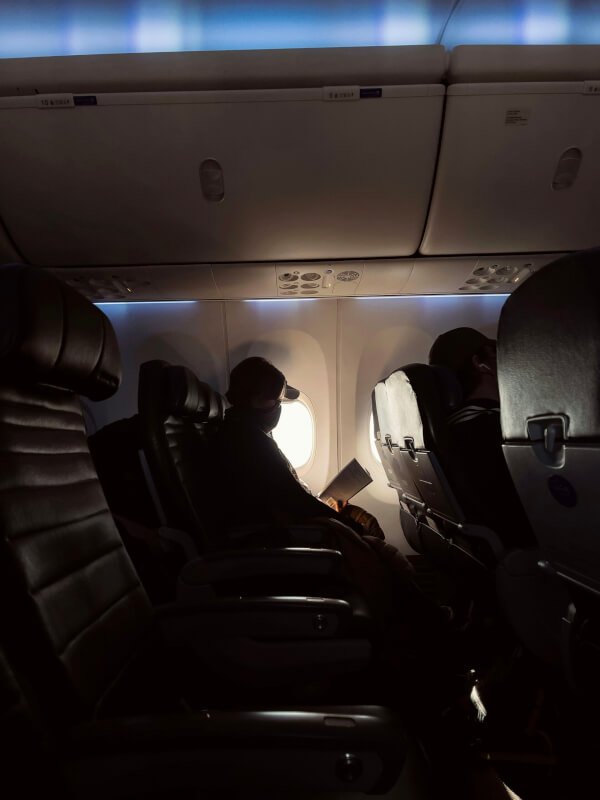If you’re eager to take to the sky with your RC helicopter and experience the exhilarating thrill of flight, choosing the right training program is essential. With countless options available, finding the perfect fit can be overwhelming. But fear not – we’re here to guide you through the process. In this article, you’ll discover invaluable tips and insights on how to select the ideal RC heli flight training program, ensuring that you receive top-notch instruction to help you soar to new heights in no time.

1. Researching Different RC Heli Flight Training Programs
When it comes to finding the right RC Heli flight training program, the first step is conducting thorough research. There are several ways to go about this, starting with an online search. Utilize search engines to find a list of potential programs that offer RC Heli flight training. Take note of the programs that catch your attention and compile a list for further evaluation.
Another excellent way to gather information is by asking for recommendations. Reach out to fellow RC Heli enthusiasts, whether it be friends, colleagues, or members of RC Heli pilot associations. They can provide valuable insights and recommendations based on their personal experiences. Hearing about their firsthand experiences will give you a better sense of which programs are highly regarded within the RC Heli community.
Furthermore, don’t underestimate the power of RC Heli community forums. These online spaces are filled with individuals passionate about RC Heli flying and are more than willing to share their knowledge and experiences. Participating in these forums and asking for recommendations can provide you with a wealth of information and a broader perspective on available training programs.
2. Considering Program Reputation and Track Record
Now that you have a list of potential training programs, it’s time to examine their reputation and track record. Start by checking program reviews. Look for testimonials from previous students and read about their experiences with the program. Pay attention to feedback regarding the instructors, curriculum, and overall quality of training. This will give you a sense of the program’s strengths and weaknesses.
Researching program instructors is equally important. Find out about their qualifications, certifications, and years of experience in the field. Having skilled and knowledgeable instructors can greatly enhance your learning experience and increase the chances of your success as an RC Heli pilot. Look for programs that have instructors with a solid background in RC Heli flight and a track record of producing successful pilots.
Additionally, finding out about program success stories can provide valuable insight into the program’s effectiveness. Look for graduates who have gone on to achieve success in the RC Heli community. This demonstrates the program’s ability to provide comprehensive training and equip students with the necessary skills to excel in the field.
3. Assessing Program Curriculum and Structure
The curriculum and structure of a training program play a crucial role in your development as an RC Heli pilot. Reviewing the course content is essential to ensure it covers all the necessary aspects of RC Heli flight. Look for programs that include both theoretical and practical components, as well as modules on safety procedures, maintenance, and troubleshooting. A well-rounded curriculum will equip you with the knowledge and skills needed to fly RC Helis confidently and safely.
Evaluate the training duration offered by each program. Consider your availability and commitment level to find a program that aligns with your schedule. While some programs may offer intensive training over a shorter period, others may spread the training over a longer duration to provide a more relaxed learning experience. Choose a program that strikes the right balance for you and allows for optimal learning and skill development.
Analyze the program’s flexibility and customization options. Determine if they offer different levels of training to cater to pilots of varying experience levels. This is particularly important if you are already an experienced pilot looking to enhance your skills or specialize in a specific area. Additionally, check if the program allows for personalized training plans to cater to individual learning styles and needs.
4. Examining Training Facilities and Equipment
The physical training facilities and equipment provided by a program also deserve careful consideration. Visiting the training center, if possible, is highly recommended. This will give you the opportunity to see the facilities firsthand and assess their quality. Look for a well-maintained and organized training center with ample space for flight practice. A clean and safe environment is crucial for effective learning.
Equally important is the quality of the RC Heli fleet provided by the program. Check if they have a diverse range of helicopter models that cater to different skill levels. Having access to a variety of helicopters will allow you to gain experience with different types of aircraft and enhance your overall flying skills. Well-maintained and up-to-date helicopters will ensure a more reliable and enjoyable training experience.
Evaluating the availability of simulators is another important factor. Simulator training can be incredibly beneficial, especially for beginners. Simulators provide a risk-free environment to practice maneuvers, learn flight controls, and develop muscle memory. Check if the program offers access to simulators and if they are adequately maintained and up-to-date. Simulators can greatly enhance your training by serving as a valuable learning tool.

5. Considering Instructor-Student Ratio
The instructor-student ratio plays a significant role in the effectiveness of your training. Inquiring about the maximum class size is essential to ensure that you will receive adequate attention and guidance from the instructors. Smaller class sizes allow for more personalized instruction and opportunities for one-on-one interaction with the instructors.
Finding out the availability of one-on-one training is crucial, especially if you prefer a more individualized learning experience or if you have specific areas that require additional attention. Some programs may offer one-on-one sessions either as part of the standard curriculum or at an additional cost. Assess your preferences and determine if this is an option you would like to pursue.
Furthermore, it is important to assess the instructor’s availability during practice sessions. Will the instructors be present to provide guidance and support during your flight practice? Having access to instructors during practice sessions can be incredibly helpful for immediate feedback, corrections, and advice. Check if the program provides dedicated practice sessions supervised by instructors to maximize your training experience.
6. Understanding Cost and Value
One of the factors that undoubtedly plays a role in your decision-making process is the cost of the training program. Comparing program fees is essential to understand the range of prices and what each program offers in return. Remember that the most expensive program may not necessarily be the best fit for you. Consider what you are getting for the price and evaluate the overall value of the program.
Assessing the included materials and resources is important in determining the value of the program. Find out if the program provides comprehensive learning materials such as manuals, textbooks, or online resources. These materials can greatly enhance your learning experience and serve as valuable references even after completing the program.
Additionally, considering additional costs is important when evaluating the overall cost of the training. Travel and accommodation expenses may be incurred if the training center is located far from your residence. Also, check if there are additional costs for exams, certifications, or equipment that may be required during the training program. Make sure to factor in these costs when assessing the value of each program.

7. Checking Program Flexibility and Support
Flexibility and support from the training program are significant factors to consider. Inquiring about make-up classes or postponements is important in case unforeseen circumstances arise that may prevent you from attending a scheduled session. Find out if the program allows for rescheduling missed classes or if they offer alternative arrangements to ensure that you complete the training successfully.
Evaluating technical support and assistance is crucial, especially if technical issues arise during the training. Check if the program offers reliable technical support to address any problems you may encounter with simulators or other training equipment. Quick and efficient technical support will ensure minimal disruption to your training and overall learning experience.
Considering access to online resources and learning materials is another aspect of program flexibility and support. Online resources can provide additional learning opportunities and serve as a convenient reference tool. Find out if the program provides access to an online platform or digital resources that you can utilize even after completing the training. Having continuous access to these resources can greatly support your ongoing learning and skill development.
8. Understanding Safety Procedures and Insurance
Safety should always be a top priority when participating in any RC Heli flight training program. Inquiring about safety protocols is essential to ensure that the program adheres to strict safety standards. Find out if the program has comprehensive safety guidelines in place and if they prioritize safety during all training activities. A program that places a strong emphasis on safety will help ensure a secure and responsible learning environment.
Checking if the program provides insurance coverage is another critical aspect to consider. Flying RC Helis comes with inherent risks, and accidents can happen even to experienced pilots. Having insurance coverage will provide peace of mind in case of any damage to equipment or property. Find out if the program includes insurance as part of the training package or if they offer insurance options for students to purchase.
Assessing the liability agreement and terms is also important. Carefully review any liability agreement provided by the program to understand your responsibilities and the program’s liability. Ensure that you are comfortable with the terms outlined in the agreement before proceeding with the training.

9. Considering Networking and Community Support
Networking and community support can greatly enhance your RC Heli flying journey. Assessing the alumni network of a training program can provide opportunities for further growth and support. Find out if the program has an active alumni network and if they offer any resources or events specifically catered to alumni. Connecting with successful graduates can provide valuable insights, advice, and potential networking opportunities within the RC Heli community.
Inquiring about community events and gatherings organized by the program is another way to assess their commitment to fostering a strong RC Heli community. Programs that organize events or gatherings allow students to connect with fellow pilots, exchange knowledge and experiences, and establish lasting relationships. These events can provide a supportive and inspiring environment for your RC Heli journey.
Additionally, researching online RC Heli communities and forums is highly recommended. Being part of an online community allows you to connect with RC Heli enthusiasts from around the world. These communities often provide a platform to ask questions, seek advice, and share experiences. Being actively involved in an online community can be a valuable source of support, inspiration, and learning.
10. Seeking Program Recommendations from Experienced RC Heli Pilots
Finally, seeking program recommendations from experienced RC Heli pilots can give you valuable insights into the quality and effectiveness of different training programs. Joining RC Heli pilot associations is an excellent way to connect with experienced pilots and seek their advice. These associations often have forums or platforms where you can interact with other pilots and seek recommendations based on their personal experiences.
Attending RC Heli competitions or exhibitions also provides an opportunity to meet experienced pilots and gather recommendations. Interacting with pilots who have already gone through training programs can give you a real-world perspective on the strengths and weaknesses of different programs. Competitions and exhibitions are also great places to witness the skill and talent of RC Heli pilots, which can further fuel your passion for the hobby.
Reaching out to RC Heli enthusiasts through online platforms, forums, or social media is another way to gather recommendations. Many enthusiasts are eager to share their experiences and provide guidance to newcomers. Engaging with these individuals can provide you with a wealth of knowledge and advice that will assist you in making an informed decision.
In conclusion, choosing the right RC Heli flight training program requires careful consideration of various factors. By thoroughly researching different programs, considering their reputation and track record, assessing the curriculum and structure, examining training facilities and equipment, and understanding cost, value, and flexibility, you can make an informed decision. Additionally, considering the instructor-student ratio, safety procedures and insurance, networking and community support, and seeking recommendations from experienced RC Heli pilots will help ensure you choose a program that aligns with your goals and sets you up for success as an RC Heli pilot.



